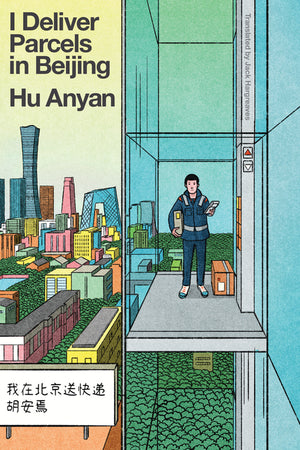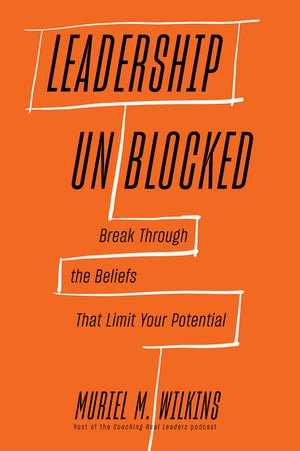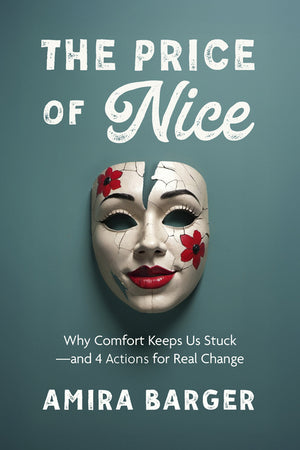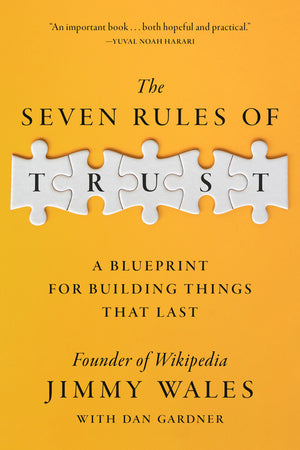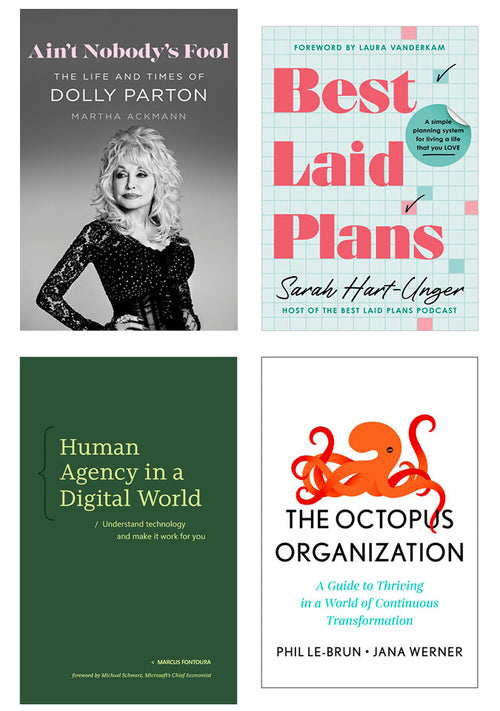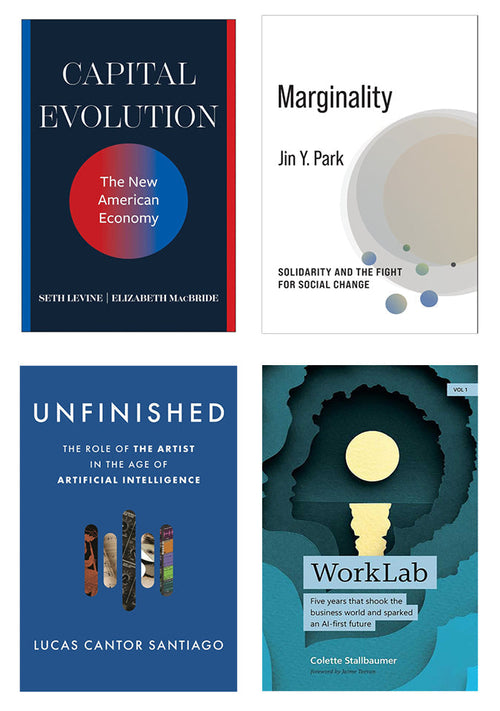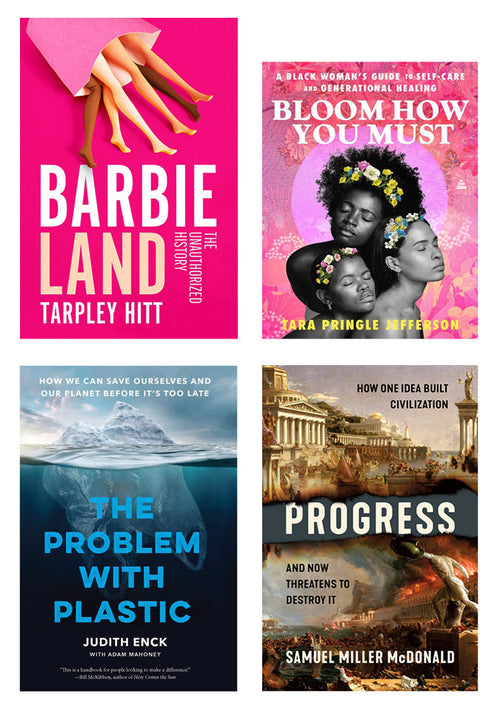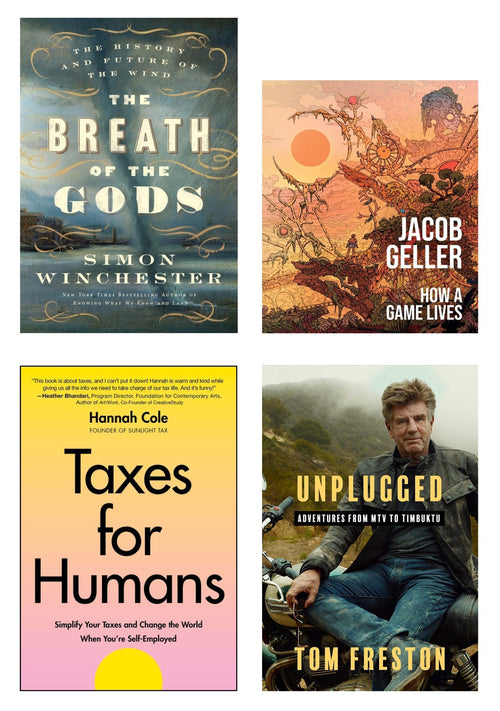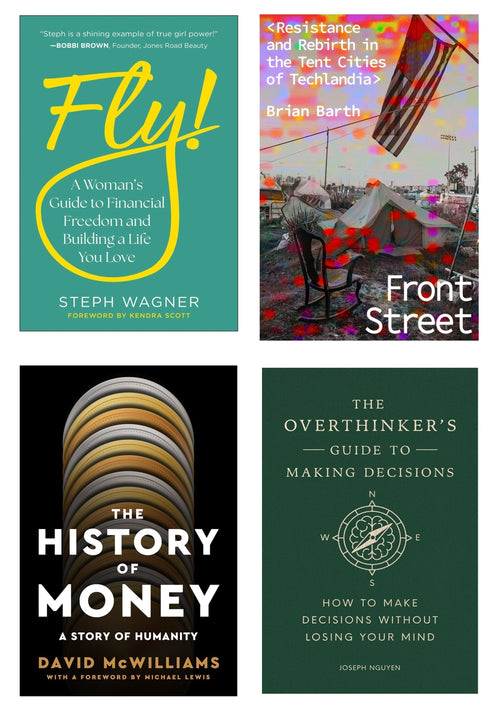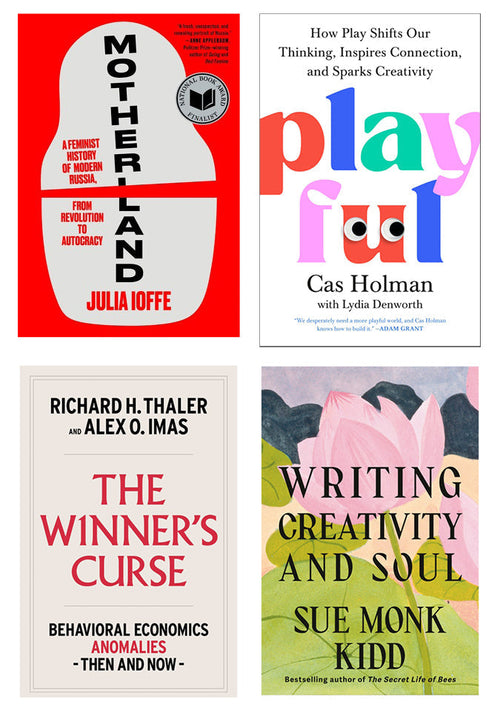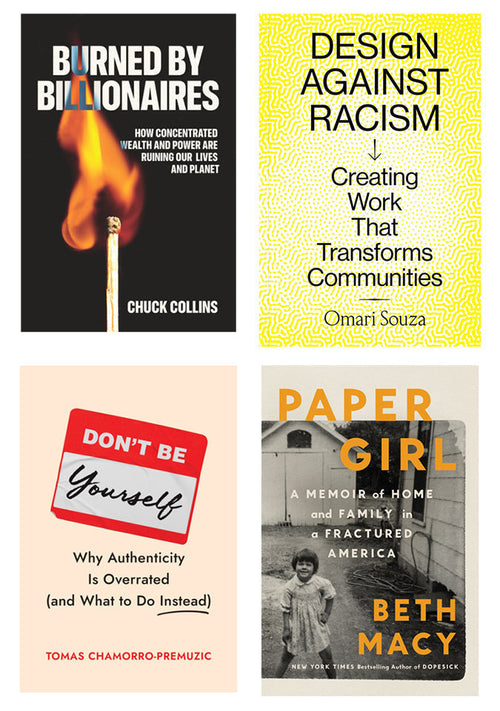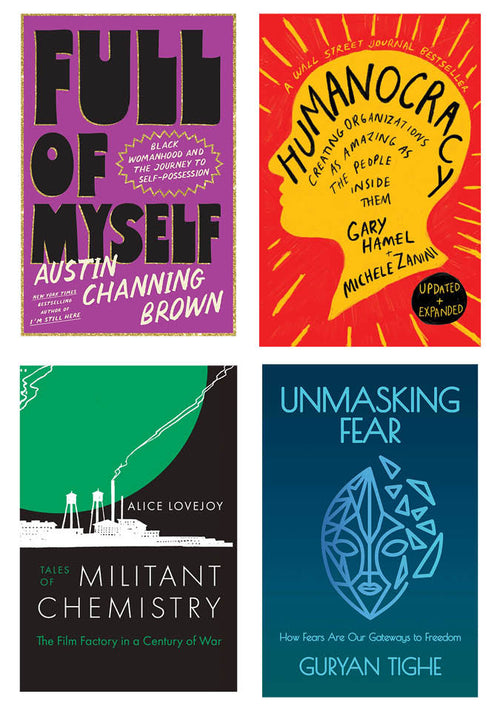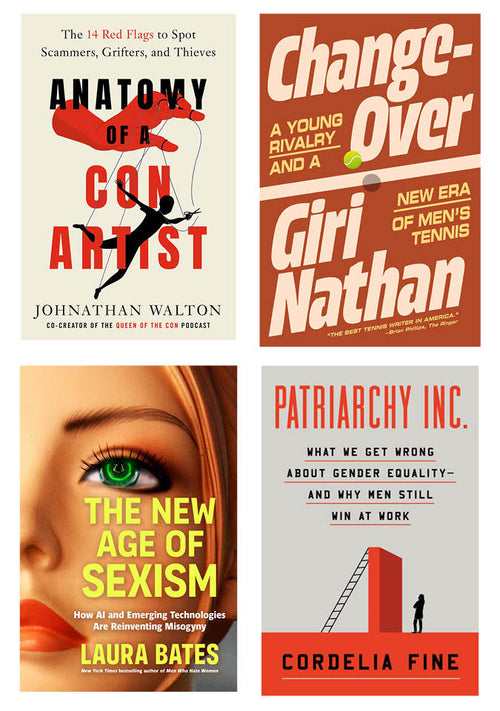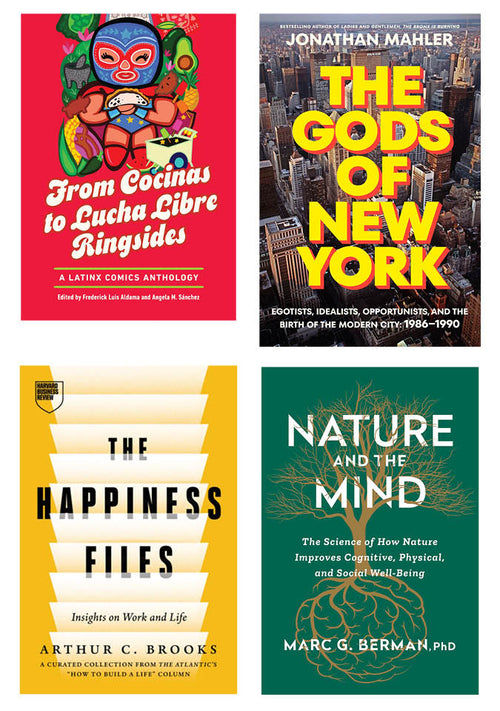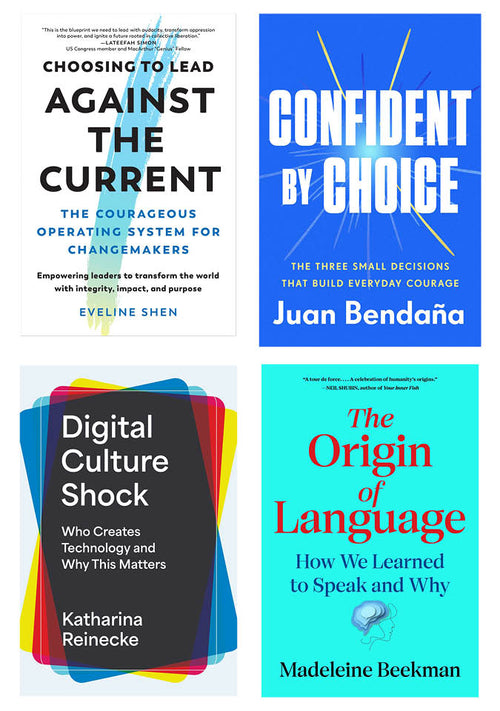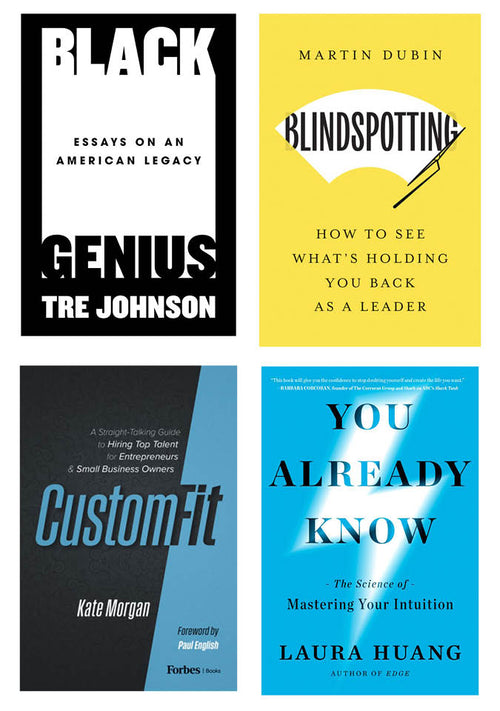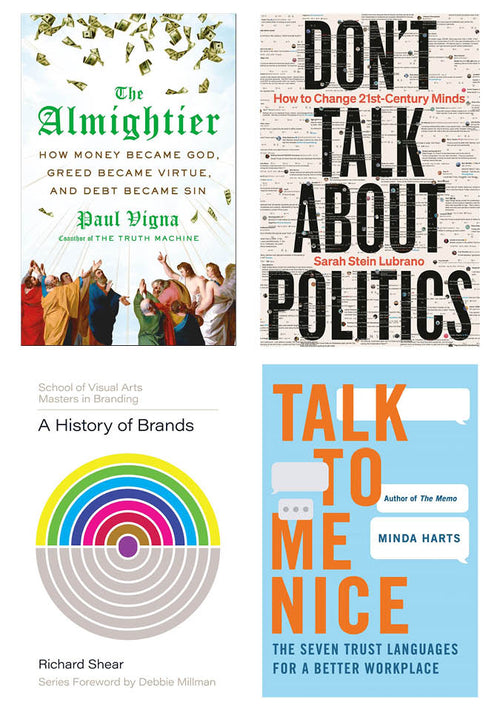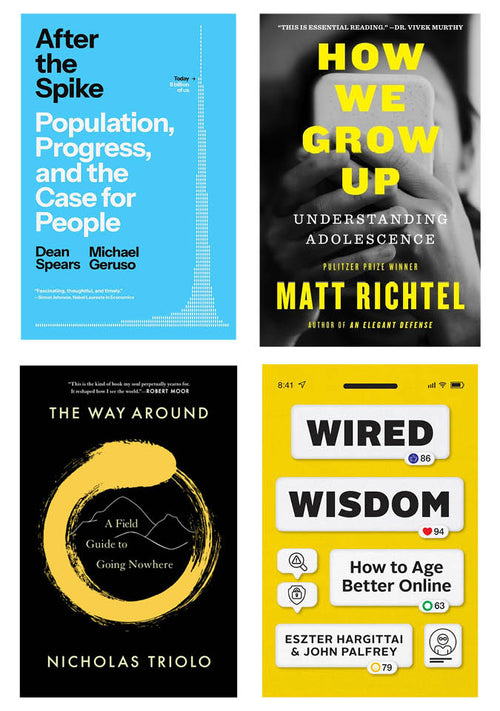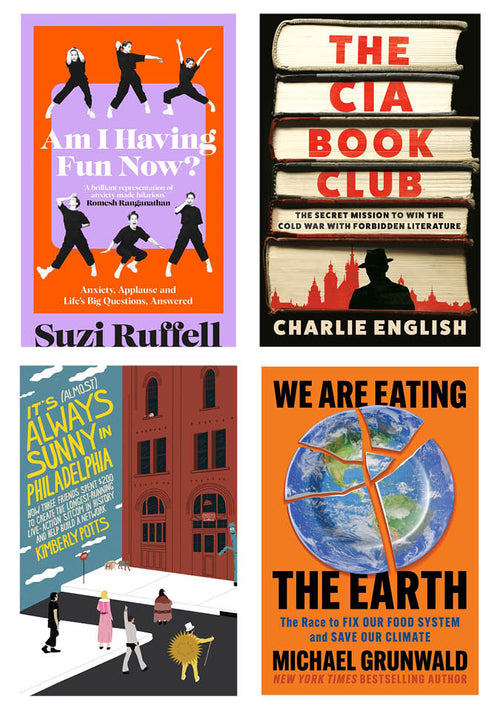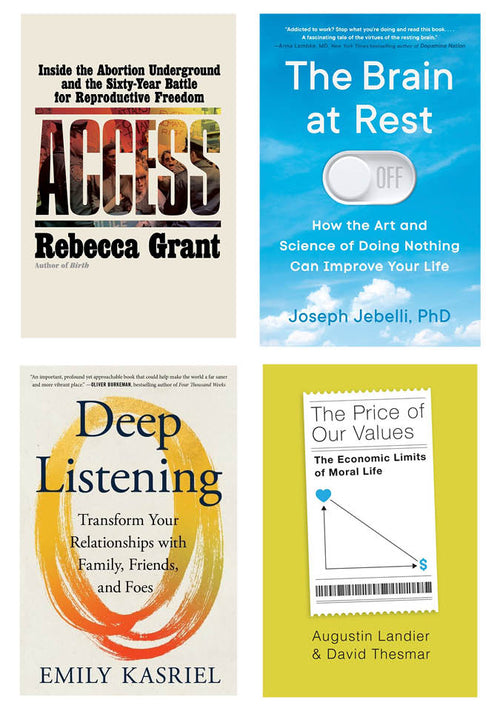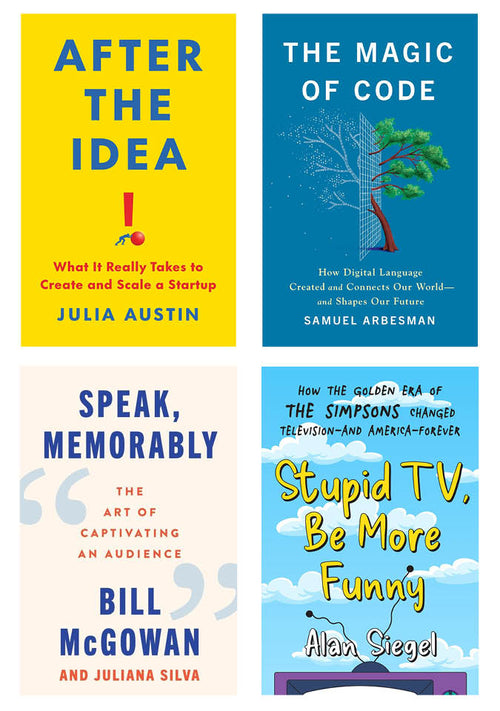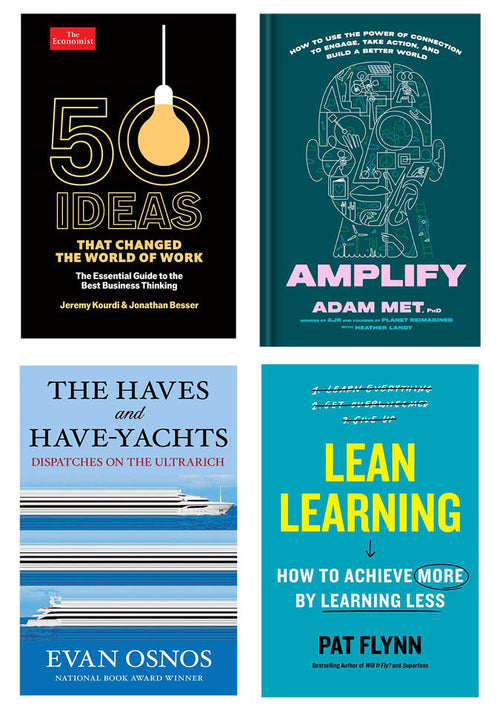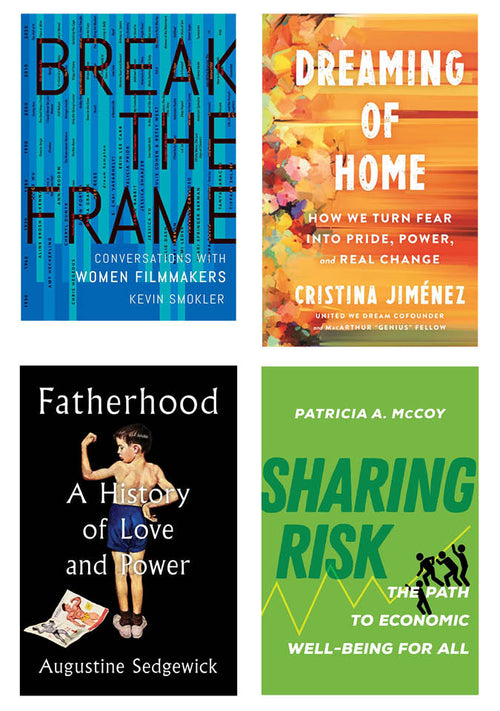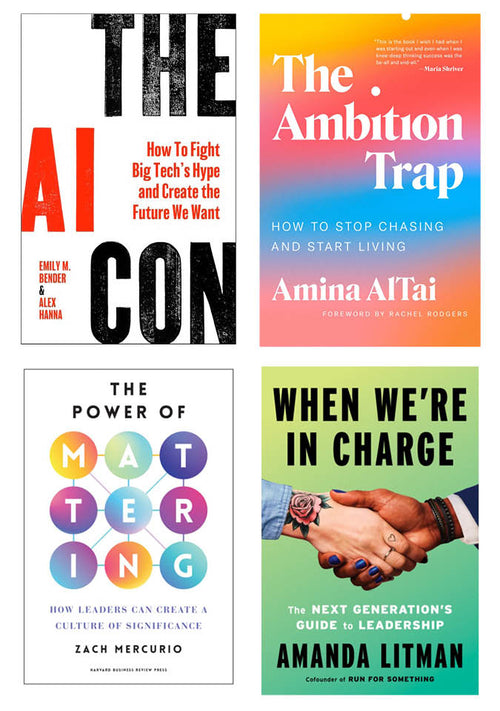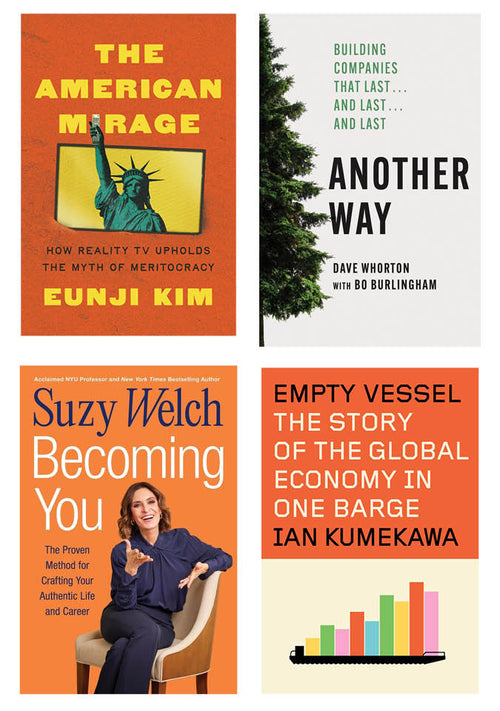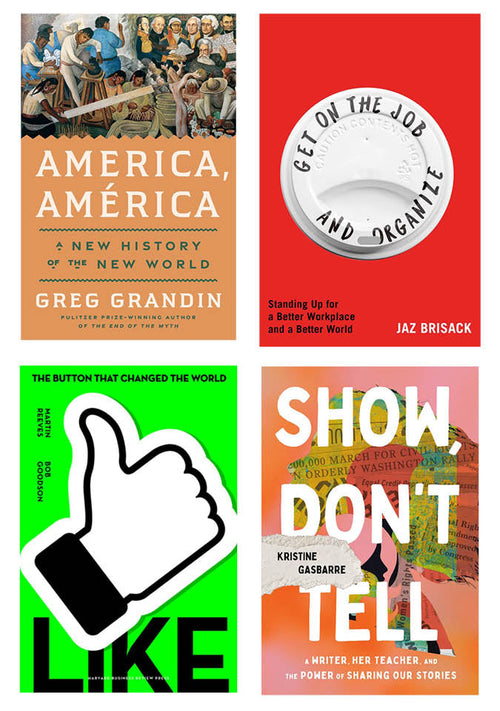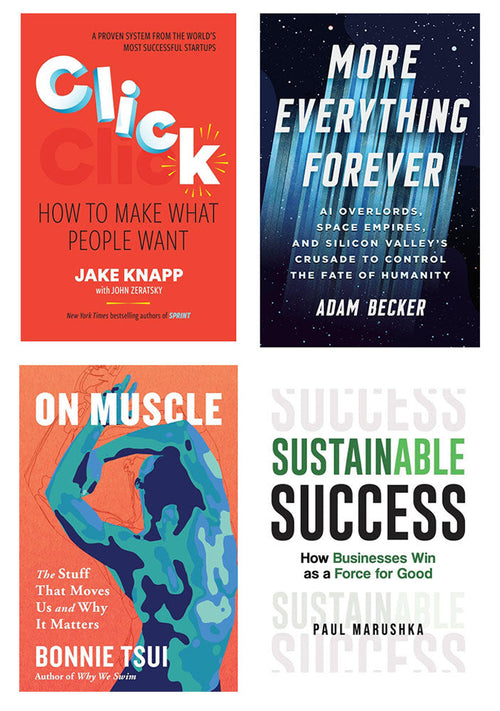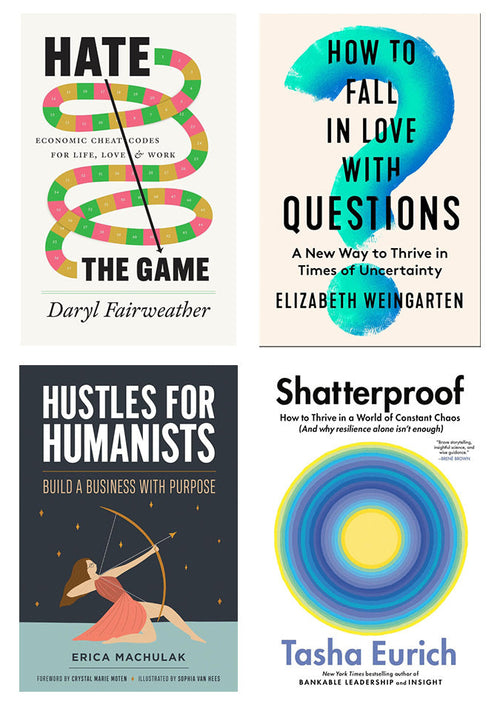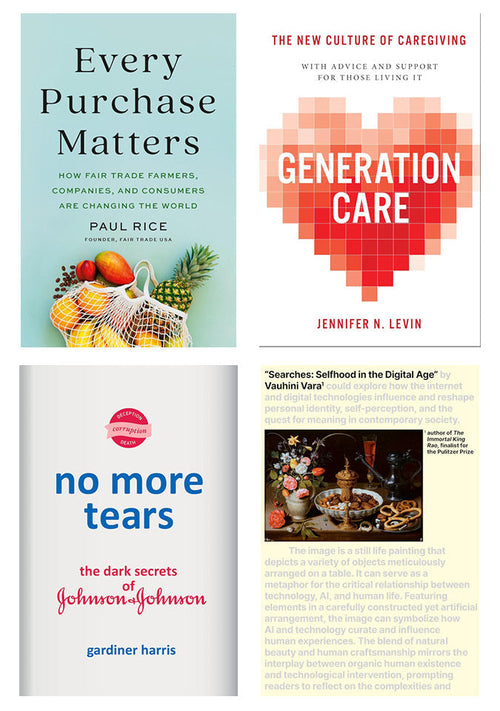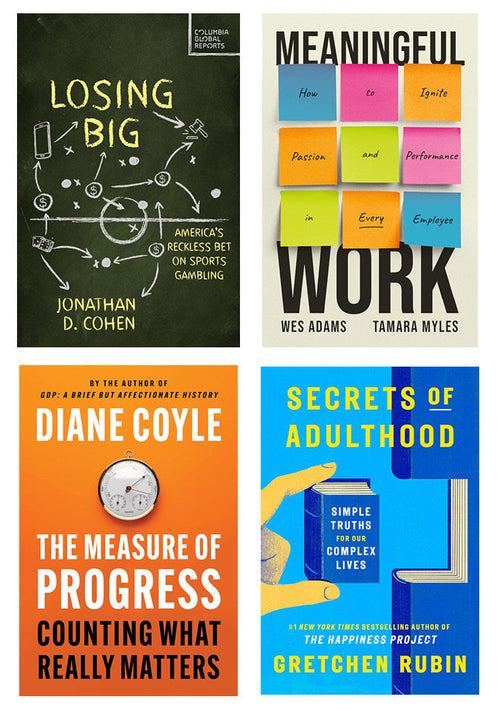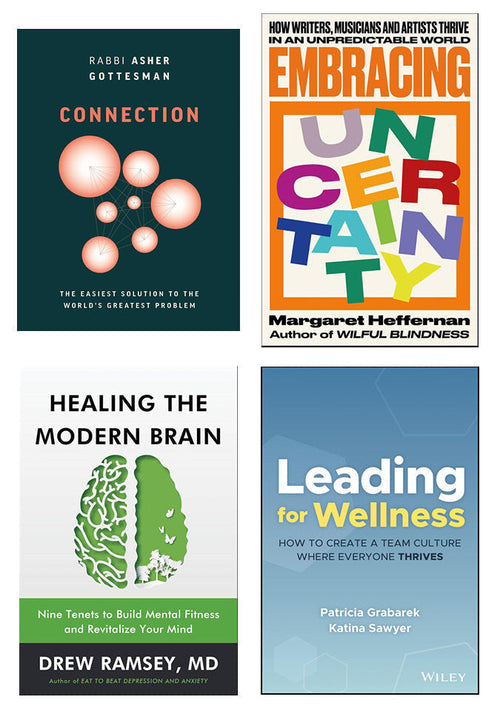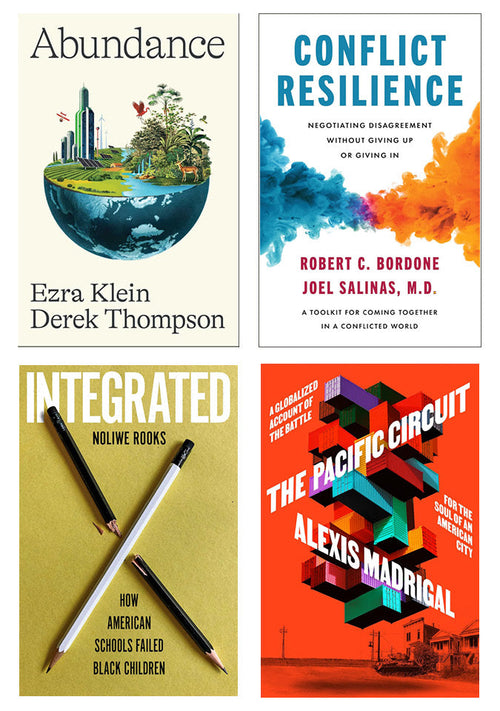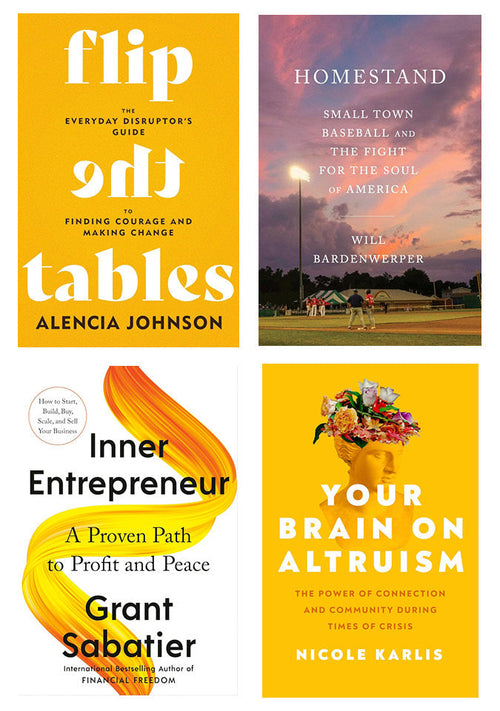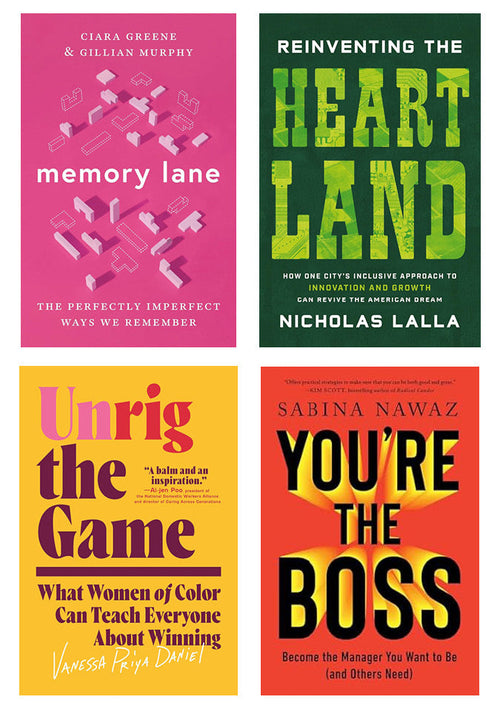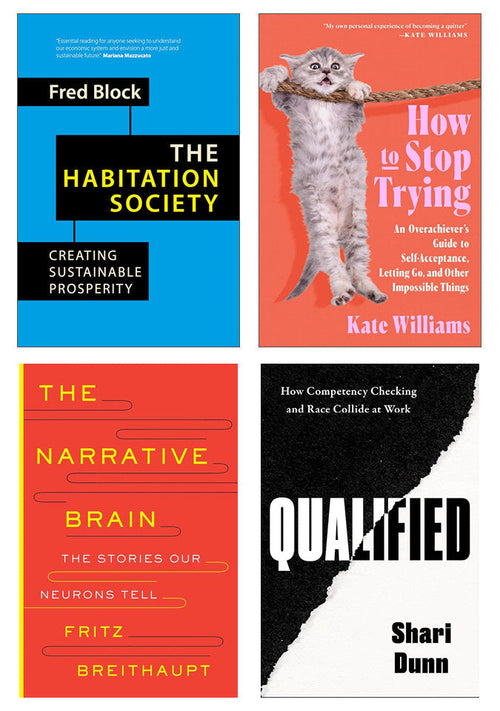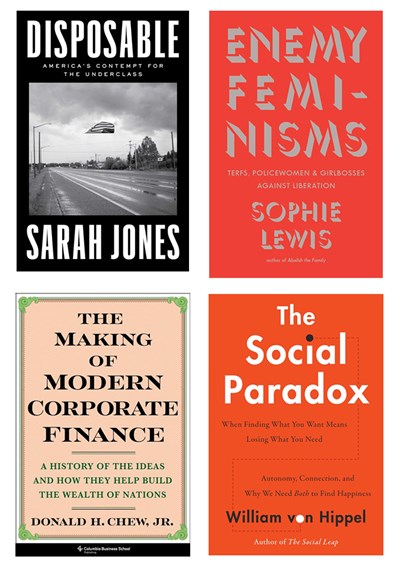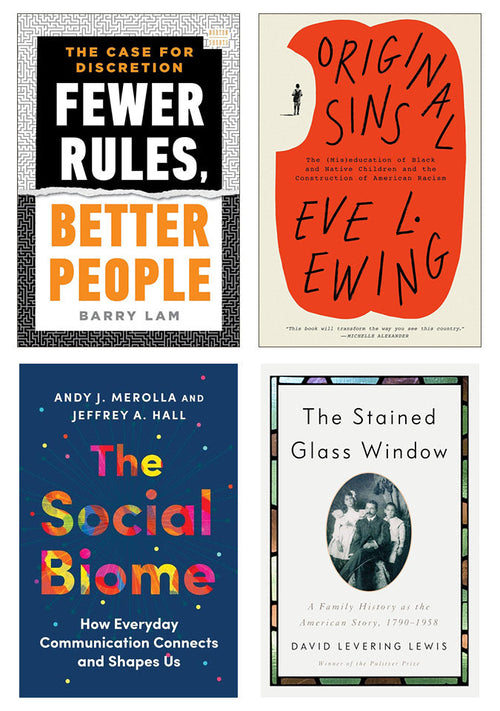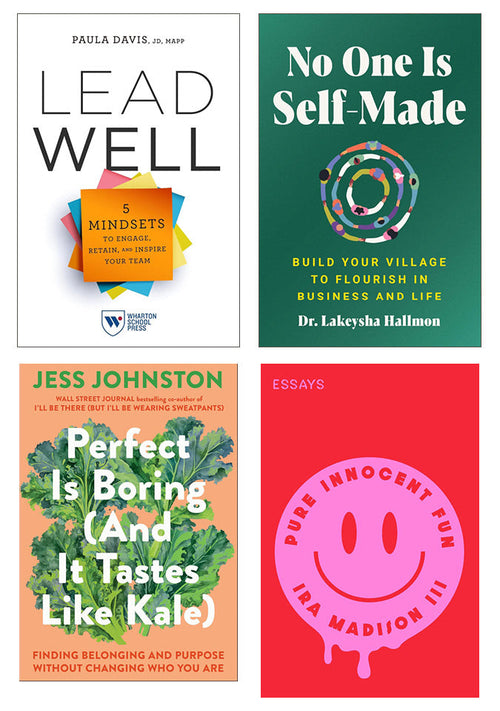New Book Releases | October 28th
From the precarity of gig work and the challenges of leadership to what niceness costs you (and all of us) and building the biggest collection of knowledge in the world, this week's best new releases cover a lot of ground.
This week's new releases feature Hu Anyan's harrowing yet humorous account of gig work in China, reflecting the precarious position of labor in the global economy, and a set of rules from Jimmy Wales, the founder of Wikipedia, to combat the "global crisis of credibility and knowledge." You'll learn from Amira Barger why it does cost something to be nice, and how those costs are borne not by you alone, but by society and, finally, if you're finding yourself frustrated in a leadership role at work, with little support forthcoming, Muriel M. Wilkins has your back with a book that "reveals seven beliefs that hold leaders back," and how to break through those beliefs to reach your full potential.

I Deliver Parcels in Beijing: One Man's Quest to Speak the Truth about the Global Gig Economy by Hu Anyan (translated by Jack Hargreaves), published by Astra House
A runaway bestseller in China, sold in 17+ countries, this delightfully honest and humorous account gives a face and voice to the future of work—as if Nomadland met Nickel and Dimed.
In 2023, I Deliver Parcels in Beijing became the literary sensation of the year in China. Hu Anyan’s story, about short-term jobs in various anonymous megacities, hit a nerve with a generation of young people who feel at odds with an ever-growing pressure to perform and succeed.
Hu started posting essays about his experiences online during COVID lockdowns. His recollection of night shifts in a huge logistics center in the south of China went viral: his nights were so hot that he could drink three liters of water without taking a toilet break; his days were spent searching for affordable rooms with proper air-conditioning; and his few moments of leisure were consumed by calculations of the amount of alcohol needed to sleep but not feel drowsy a few hours later.
Hu Anyan tells us about brutal work, where there is no real future in sight. But Hu is armed with deadpan humor and a strong idea of self. He moves on when he feels stuck—from logistics in the south, to parcel delivery in Beijing, to other impossible jobs. Along the way, he turns to reading and writing for strength and companionship.
I Deliver Parcels in Beijing is an honest and startling first-person portrait of Hu Anyan's struggle against the dehumanizing nature of our contemporary global work system—and his discovery of the power of sharing a story.
Leadership Unblocked: Break Through the Beliefs That Limit Your Potential by Muriel M. Wilkins, published by Harvard Business Review Press
Your mindset may be the only thing standing between you and your leadership potential. Break free from the beliefs that hold you back.
As a leader, you likely find yourself frustrated at times, wondering why employees don't meet expectations, peers are slow to act, or pressure from your boss falls unfairly on your shoulders. It's easy to point a finger at others and double down on getting results. But have you ever considered that the problem may not be them—it may be you?
Through countless hours coaching executives over the past twenty years, Muriel M. Wilkins has pinpointed the biggest reason behind these common leadership challenges: hidden blockers. These unconscious beliefs can actively block progress if leaders aren't aware of their existence, preventing leaders from seeing a situation clearly, solving problems effectively, and advancing their careers.
Leadership Unblocked reveals seven beliefs that hold leaders back, from "I know I'm right" to "I need to be involved" to "I don't belong here." Combining powerful coaching conversations and research from the fields of neuroscience, leadership, and adult development theory, Wilkins offers a road map for identifying, unpacking, and breaking through these barriers.
By using the tools in this book, you can finally cultivate the mindset to achieve your goals and become the leader you want to be.
The Price of Nice: Why Comfort Keeps Us Stuck and 4 Actions for Real Change by Amira Barger, published by Berrett-Koehler Publishers
“What’s wrong with nice?!” A simple and powerful question. It demands we interrogate the unspoken rules that shape our lives, often without our realizing it.
“It costs nothing to be nice!” What a travesty of logic. Niceness is not free—it comes at a steep price. It’s a velvet glove over an iron fist, stifling dissent, prioritizing comfort over progress, and conditioning us to accept the status quo. Niceness is one of the most insidious social constructs, keeping us compliant, silent, and complicit in inequity. If we don’t question it, we stay exactly where power wants us—agreeable, easy to manage, and stuck.
The Price of Nice is about breaking free. Amira Barger deconstructs our cultural obsession with niceness, exposes its hidden costs, and offers a practical framework for real change. With sharp analysis and personal insight, she helps readers disrupt the narratives that keep them stuck and reclaim their power.
Guided by four dimensions rooted in social psychology—think, feel, do, revisit—this book offers immediate, adaptable practices for creating change. Because breaking free isn’t only what you know—it’s what you do next.
If you're tired of “good enough,” this book will challenge you, change you, and call you to more.
The Seven Rules of Trust: A Blueprint for Building Things That Last by Jimmy Wales with Dan Gardner, published by Crown Currency
From the founder of Wikipedia, a sweeping reflection on the global crisis of credibility and knowledge, revealing “the rules of trust” that transformed Wikipedia from a scrappy experiment into a global utility used by billions of people—and how those rules can help others build things that last.
From the beginning, people predicted Wikipedia’s demise. Instead, this global experiment in sharing knowledge and expertise online has become part of the fabric of modern, connected life. Today, every month, people view Wikipedia 11 billion times—just in the English language. The Internet’s encyclopedia has become a global utility, like water or electricity, and we rarely pause to consider the extraordinary fact of its existence.
Long before it became the biggest collection of knowledge in the history of the world, Wikipedia had to overcome its greatest challenge: getting strangers on the Internet to trust each other. They had to trust that others would not be abusive or uncivil. They had to trust that others would not unfairly change or erase their contributions. They had to trust that people had good intentions.
Trust, Wikipedia founder Jimmy Wales says, is a treasure. But it is not inanimate, like gold or gems. Trust is a living thing that can and must be cultivated. This book will show you how. And it will reveal how his organization, this one-time punchline, has become a global authority—in the same two decades when the public’s trust in everything else, from government to social media, has trended backwards.
Every community on earth depends on trust; it underpins our capacity to know things, and it is at an all-time low. Inspiring, approachable, and packed with candid lessons from the early days of Wikipedia, The Seven Rules of Trust is a guide to kickstarting a positive loop of accountability and creativity—and to building things that stand the test of time.
◊◊◊◊◊
The Porchlight staff members choosing new books each week are Porchlight's Managing Director, Sally Haldorson, and the marketing team of Gabriella Cisneros and Dylan Schleicher.
Unless otherwise noted, all book descriptions are from the publisher.

